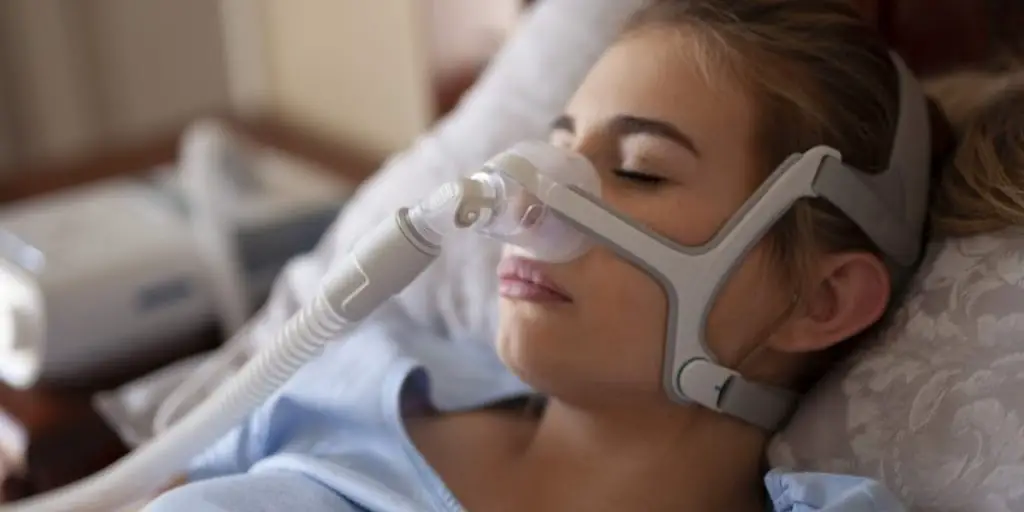There are several ways to potentially prevent sleep apnea
or reduce its severity:
1. Maintain a healthy weight and exercise regularly.
2. Avoid alcohol and sedatives, especially before bedtime.
3. Sleep on your side instead of your back.
4. Quit smoking, as it can worsen sleep apnea symptoms.
5. Treat underlying medical conditions such as allergies or
hypothyroidism that may contribute to sleep apnea.
6. Consider using a continuous positive airway pressure
(CPAP) machine or other medical devices, if recommended by a doctor.
7. Consider oral appliance therapy, which involves wearing a
device in the mouth to help keep the airway open during sleep.
It is important to consult a doctor if you suspect you
have sleep apnea, as they can provide a proper diagnosis and recommend an
appropriate treatment plan.
Who Is Most at Risk?
Anyone can develop sleep apnea, but certain factors can
increase the risk. These include:
1. Obesity or being overweight: Extra weight can put
pressure on the airway and make it more likely to collapse during sleep.
2. Age: Sleep apnea can occur at any age, but it is more
common in older adults.
3. Gender: Men are more likely to develop sleep apnea than
women.
4. Family history: Sleep apnea can run in families,
indicating a possible genetic predisposition.
5. Having a small upper airway: A narrow throat or airway
can make it more difficult to breathe during sleep.
6. Smoking: Smoking can increase inflammation and fluid
retention in the upper airway, leading to sleep apnea.
7. Alcohol and sedative use: These substances can relax the
muscles in the throat and make it easier for the airway to collapse.
It’s important to note that anyone can develop sleep
apnea, regardless of risk factors, so it’s important to be aware of the
symptoms and seek medical attention if necessary.
Genetics
There is evidence to suggest that genetics may play a
role in the development of sleep apnea. Studies have shown that having a family
history of sleep apnea increases an individual’s risk of developing the
condition.
Additionally, certain genetic traits and variations have
been identified as potential contributors to sleep apnea. For example,
variations in genes that regulate inflammation and control the muscles of the
upper airway may increase the risk of sleep apnea.
While genetics may increase the risk of developing sleep
apnea, it’s important to note that lifestyle factors such as obesity, smoking,
and alcohol use can also play a significant role. Treatment options, such as
lifestyle changes and medical devices like CPAP machines, are effective
regardless of whether genetics are a contributing factor or not.
How to Reduce Risk?
To reduce the risk of developing sleep apnea, there are
several steps that you can take, including:
1. Maintain a healthy weight: Being overweight or obese
increases the risk of sleep apnea, so maintaining a healthy weight can help
reduce the risk.
2. Exercise regularly: Regular physical activity can help
improve sleep quality and reduce the risk of sleep apnea.
3. Avoid alcohol and sedatives: Alcohol and sedatives can
relax the muscles in the throat and make it more difficult to breathe during
sleep.
4. Quit smoking: Smoking can contribute to inflammation and
fluid retention in the upper airway, increasing the risk of sleep apnea.
5. Sleep on your side: Sleeping on your side can help keep
the airway open during sleep and reduce the risk of apnea events.
6. Treat underlying medical conditions: Certain medical
conditions, such as allergies or hypothyroidism, can contribute to sleep apnea,
so treating these conditions may help reduce the risk.
7. Consider screening for sleep apnea: If you suspect that
you may be at risk for sleep apnea, talk to your doctor about the possibility
of undergoing a sleep study to diagnose the condition.
Remember that not all risk factors for sleep apnea are
controllable, such as genetics and age, so it’s important to be aware of the
symptoms of sleep apnea and seek medical attention if necessary.
Discuss With Your Healthcare Provider
If you suspect that you may have sleep apnea or are at
risk for the condition, it’s important to discuss your concerns with your
healthcare provider. Your doctor can help evaluate your risk factors and
recommend appropriate testing and treatment if necessary.
During your appointment, your doctor may ask about your
symptoms, sleep habits, and medical history. They may also perform a physical
exam and recommend a sleep study to diagnose the condition.
If you are diagnosed with sleep apnea, your doctor may
recommend lifestyle changes such as weight loss, exercise, and smoking
cessation. They may also recommend medical devices such as a continuous
positive airway pressure (CPAP) machine to help keep the airway open during
sleep.
In some cases, surgery may be necessary to treat sleep
apnea, although this is generally considered a last resort option.
It’s important to remember that untreated sleep apnea can
lead to a range of health problems, including high blood pressure, heart
disease, and stroke, so it’s important to seek treatment if necessary.
Conclusion
In conclusion, sleep apnea is a common sleep disorder
that can have serious health consequences if left untreated. While anyone can
develop sleep apnea, certain risk factors such as obesity, age, gender, family
history, smoking, and alcohol use can increase the risk.
To reduce the risk of sleep apnea, it’s important to
maintain a healthy weight, exercise regularly, avoid alcohol and sedatives,
quit smoking, sleep on your side, and treat underlying medical conditions. If
you suspect that you may have sleep apnea, it’s important to discuss your
concerns with your healthcare provider and undergo appropriate testing and
treatment.
Effective treatments for sleep apnea include lifestyle
changes, medical devices like CPAP machines, and, in some cases, surgery. By
taking steps to reduce the risk of sleep apnea and seeking treatment if
necessary, you can improve your sleep quality and reduce the risk of associated
health problems.





